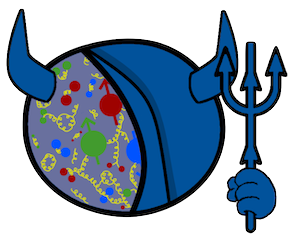Speaker
Description
Detection of the spectator nucleon in high-energy electron-deuteron scattering ("spectator tagging") controls the nuclear configuration during the high-energy process and permits a differential analysis of nuclear effects. In scattering on the polarized deuteron, spectator tagging effectively controls the spin structure of the nuclear configuration, by fixing the S/D wave ratio through the measured spectator momentum. This can be used to control the effective neutron polarization in neutron spin structure extraction from scattering on a vector-polarized deuteron, or to maximize the tensor-polarized asymmetries in scattering on a tensor-polarized deuteron. We summarize the theory and applications of spectator tagging with the polarized deuteron and discuss the prospects for potential fixed-target and collider experiments (JLab 12 GeV, EIC). At the EIC, proton and neutron spectators will be detected with the far-forward detectors integrated in the interaction region. While achieving deuteron beam polarization at the EIC is challenging, it is regarded as technically feasible and could be considered as a future facility upgrade.

